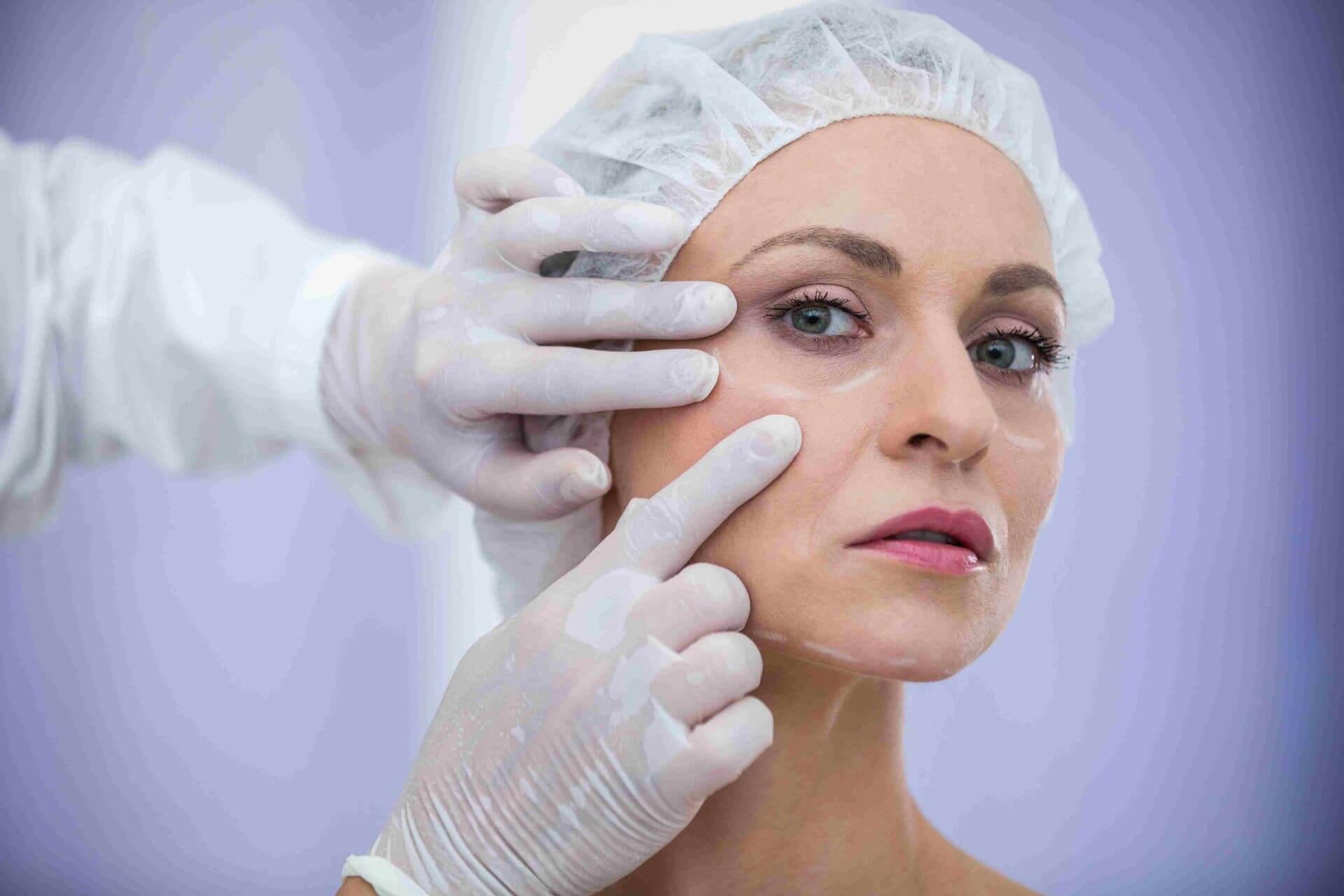Facial surgery remains the best way to get intense results when it comes to anti-aging. Facial surgeries such as neck lifts and facelifts help drastically reduce signs of aging. As with any surgery, you’ll want to prepare beforehand to ensure a safe, comfortable recovery.
What are the different types of facial surgeries?
There are several different surgeries done on the face. Some are done to reduce or eliminate sagging, wrinkles, and fine lines. The one that first comes to mind for many is a facelift. A facelift provides lift to the skin on the face, but there are several other anti-aging surgeries that can be done to the face as well. There is also a brow lift, which targets the forehead area, brows, and can also provide some lift to the upper-eye area. Moving down to the lower face, a neck lift targets the neck but also improves the appearance of the jawline (jowls), chin, and submental area (reducing the “double chin” look).
Some surgeries can be done to enhance the shape of different areas on the face, such as chin implants or buccal fat removal.
Blepharoplasty is another form of rejuvenating surgery done on the face, namely, the eyelids. A blepharoplasty can provide lift to sagging eyelids, correct baggy under-eyes, and help contribute to an overall younger look to the face. And a rhinoplasty can change the shape and size of your nose.
Why is it important to prepare for facial surgery?
No matter the exact surgery being done to the face, there are several precautions that should be taken before surgery. Why should you prepare for surgery? The reason preparing for facial surgery is so important is because it makes recovery so much easier. It reduces the chances of complications during surgery and reduces the chance of more severe side effects during recovery. While certain things are to be expected during recovery, such as swelling and redness, being proactive can make all the difference between minor, expected side effects and more major side effects or even complications.
How to prepare for facial surgery
Of course, your doctor will go over specific tips for your case and your surgery. However, here are some general tips to follow on how to prepare for facial surgery. Be sure to check in with your plastic surgeon should you have any questions regarding any of these tips!
Medications: If you are taking any medications or supplements, whether they’re prescription or over-the-counter, be sure to mention them to your plastic surgeon to find out which, if any, need to be paused before your procedure and for how long. For example, blood thinners should not be taken too close to your surgery to reduce the risk of excessive bleeding (your plastic surgeon and primary care doctor can help determine the best time to stop). Supplements, even “natural” or herbal ones, should be mentioned as well. For example, valerian is a sedative supplement that should not be taken before surgery as it can enhance the effects of anesthesia.
Smoking: If you are a smoker, you will need to stop before surgery. Smoking takes a toll on the body and interferes with the healing process. Studies have shown that stopping smoking four weeks before surgery has a positive impact on recovery and lowers the chance of infection after surgery. Since it can be hard to completely quit for a long time, have an honest discussion with your plastic surgeon about how long before surgery you can commit to quitting to ensure a safe recovery.
Skincare products: Should you continue to use your anti-aging products and other skincare products in the days and weeks before facial surgery? It depends. You can continue to safely use cleansers, although opting for gentle facial cleansers in the days before your surgery is best. Other mild skincare products should be fine, and when in doubt, consult with your plastic surgeon to come up with a safe skincare routine. Products that cause sensitivity or have the potential to (for example, products with retinol) should be avoided.
Clothing: After surgery, you don’t want to be pulling any tight-necked shirts over your head, so plan ahead to have some button-down shirts available to wear in the weeks after surgery as you give your incision(s) time to heal.
Prepare your environment: This is more of a practical tip, but it is still important. After surgery, you’ll want to recover in a comfortable place. Prepare ahead of time where you’ll sit/rest (have plenty of pillows to help you comfortably recline for optimal healing). If your surgery necessitates any special diet, make sure you have enough of those foods on hand. Also, plan some activities to keep you from getting bored on the days you’ll need to rest.
Following these tips can ensure a smooth and comfortable recovery!




